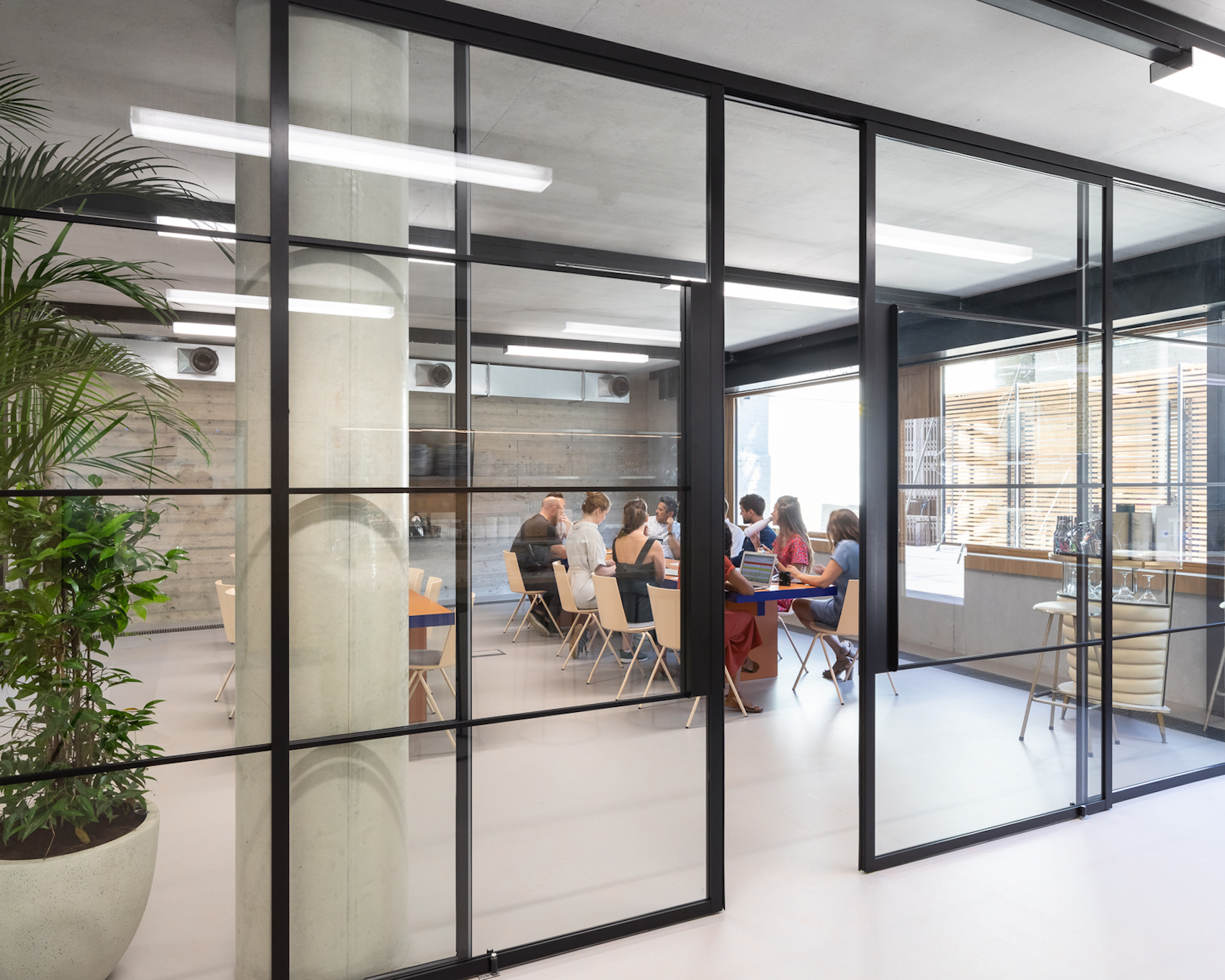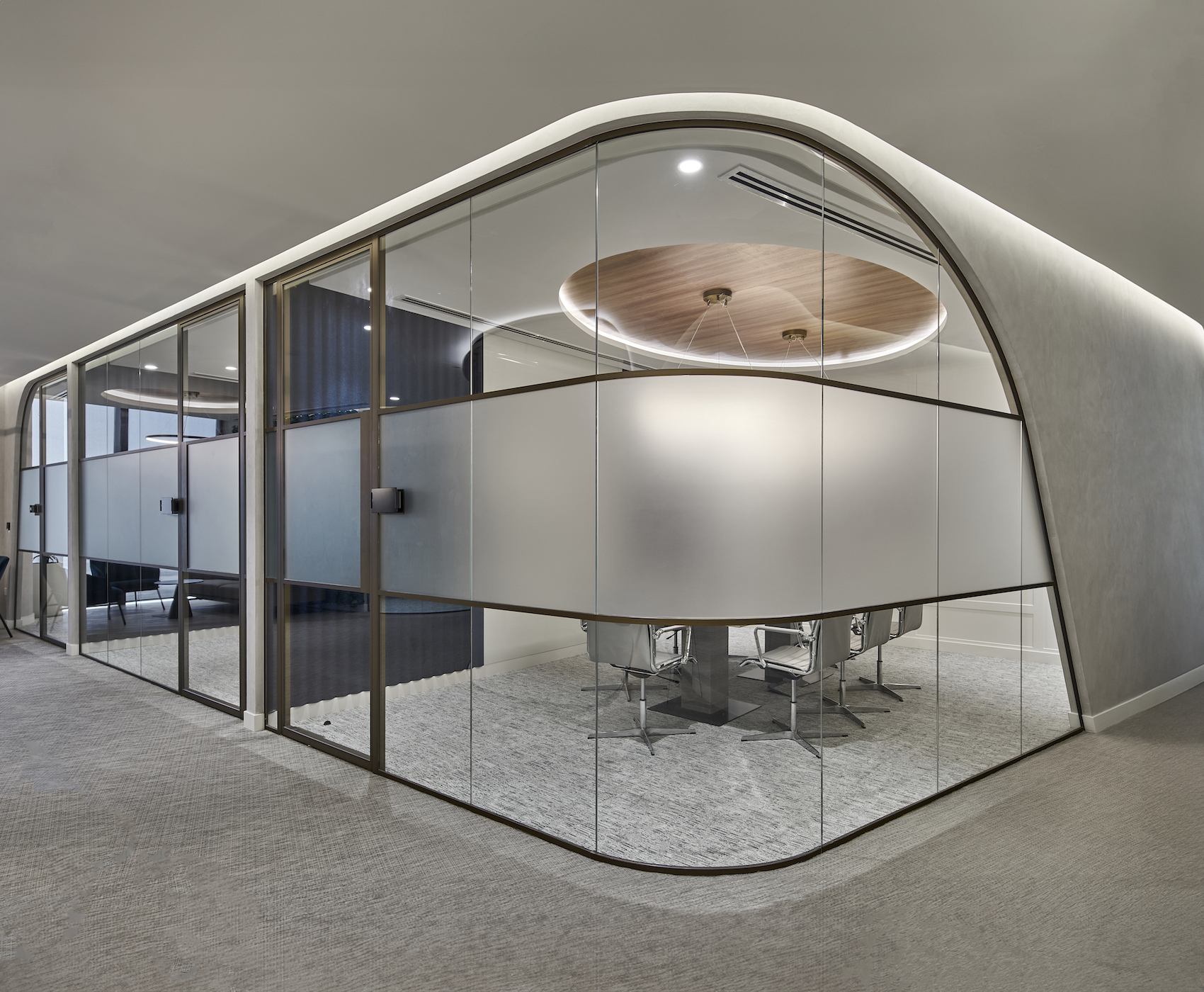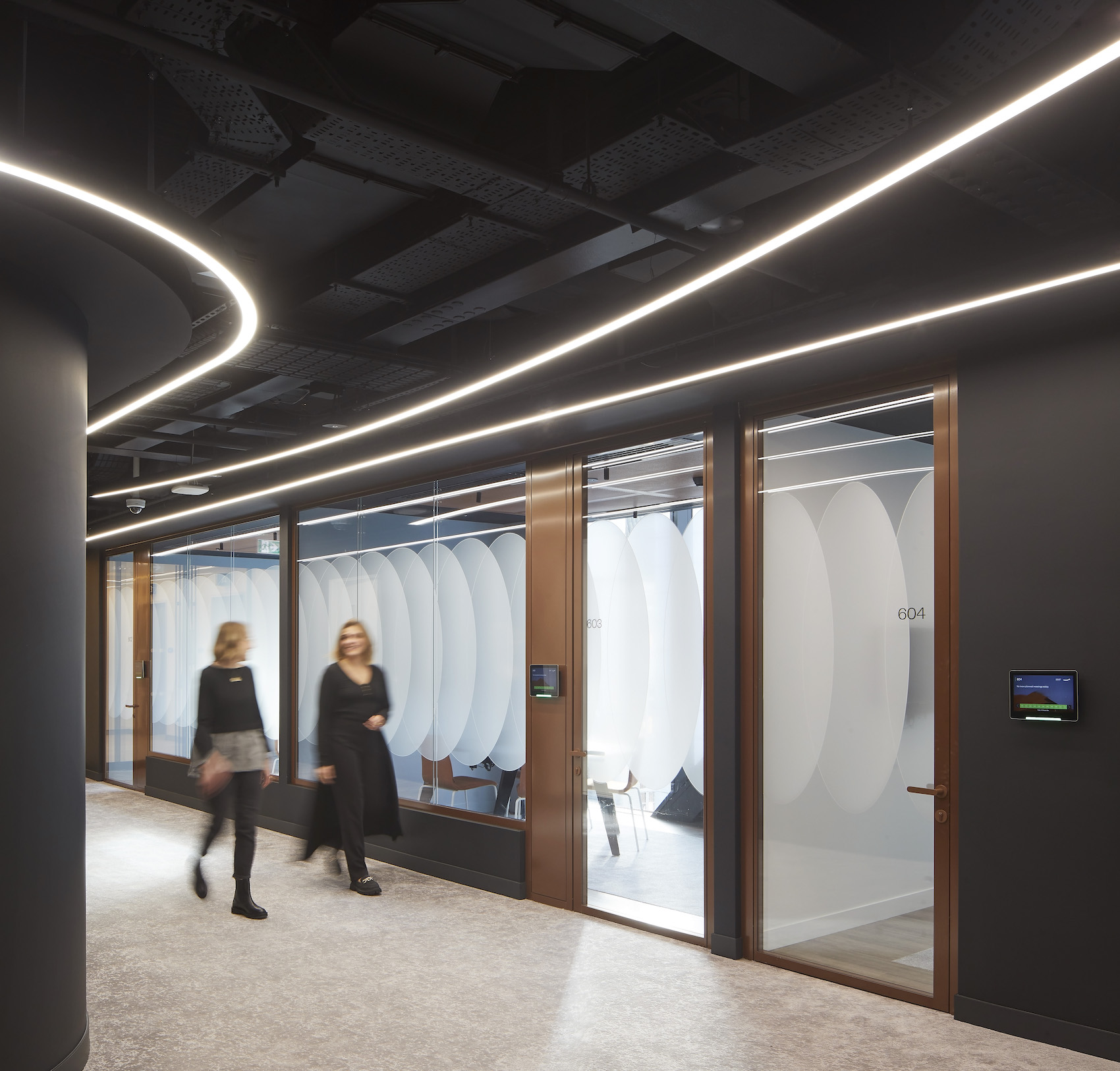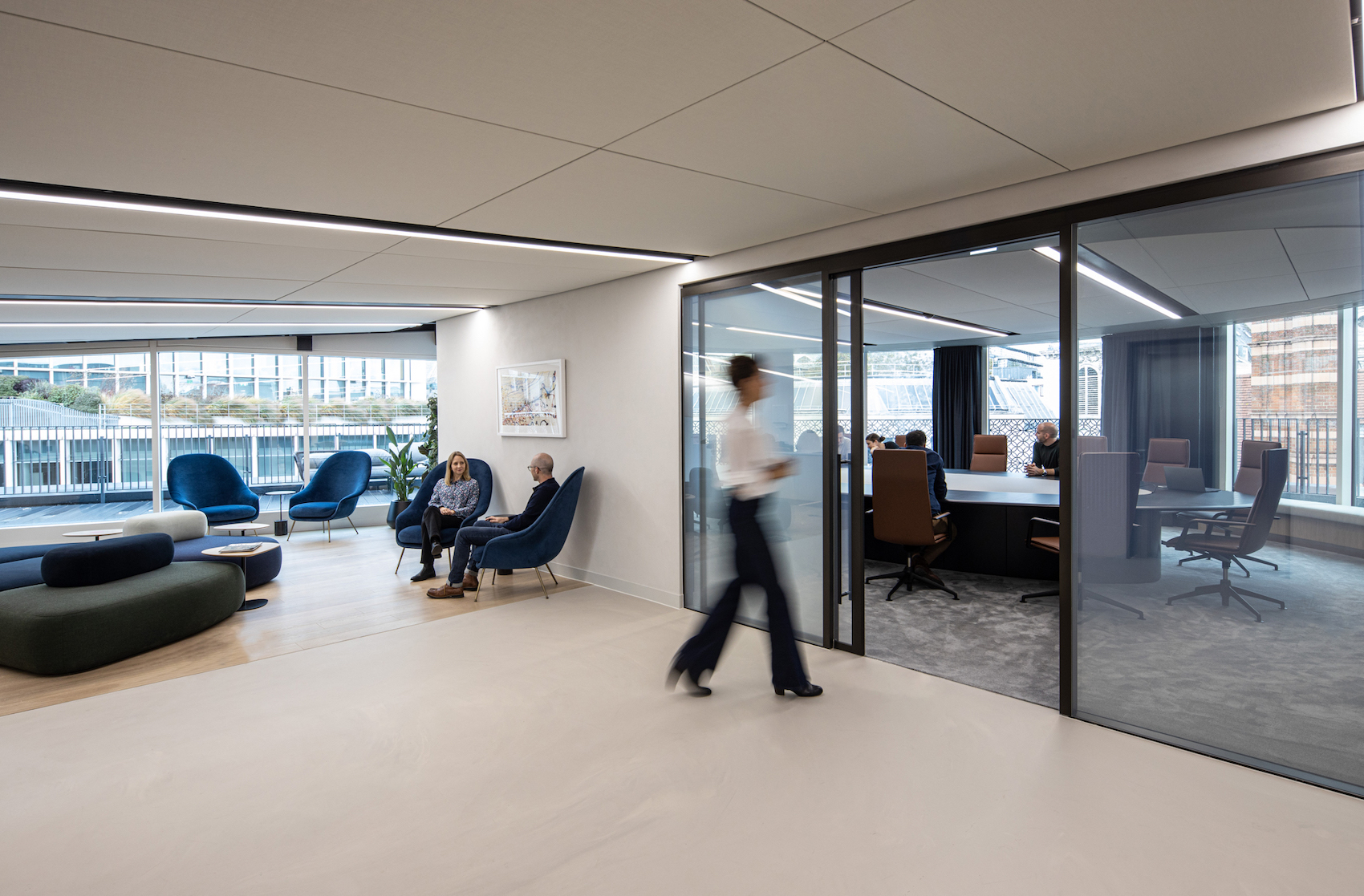Quiet confidence
As offices adapt to hybrid working, acoustic control has become essential for comfort and certification. Optima outlines why independently verified data is critical for specifying glass partitions and doors that perform as designed.
In association with![]()
Optima Systems’ 117 Plus single-glazed partitions with Edge Symmetry doors were used in this project to create meeting rooms to support acoustic control within an open plan workspace.
Return-to-office mandates in a post-COVID world challenge more than employee expectations. Hybrid working has reshaped workspaces and demands more from less. With teams moving fluidly between remote and in-person collaboration, workplace design is under renewed scrutiny — needing to balance interaction with focus, while supporting seamless video calls and quiet concentration.
Optima’s bi-parting Shoreditch edition Kinetic Align sliding doors. These fully framed sliding doors feature acoustic seals on all the edges which maximises their acoustic performance.
At the same time, denser floorplates and open-plan layouts have amplified noise as one of the biggest workplace complaints. Conversations at workstations, banks of people on Teams or Zoom calls, and impromptu catch-ups all add to the challenge. For architects, this has heightened the need to create spaces with carefully controlled acoustics — from quiet zones for focused work to meeting rooms that ensure confidentiality and clarity.
Noise management is as essential as ever — and effective solutions rely on products with proven, trustworthy performance. Effective acoustic design also supports sustainability goals. Indoor environmental quality contributes to BREEAM and LEED ratings, while WELL certification evaluates noise levels, speech privacy, sound reduction and even soundscapes. To address these needs, specifiers require access to independent, verified data to ensure solutions perform as intended.
In this project Optima 117 Plus Shoreditch Edition partitioning and Edge Symmetry doors have been specified for designated spaces that support privacy and focused work.
Tested and verified performance
Partitioning and door systems are often used to create designated spaces or zones in open offices. But how well these solutions perform acoustically depends on accurate specification backed by reliable test results. Independent laboratory testing is critical, as without it, products can underperform in practice, undermining both design intent and certification goals.
Acoustic performance is usually measured by a partition’s Sound Reduction Index (SRI) — the degree to which airborne sound is blocked. This is standardised into a single weighted value, such as Rw (Weighted Sound Reduction Index), enabling direct comparison between products tested under controlled laboratory conditions.
Optima’s popular Revolution 54 Plus slimline, mullion-free glazed partitions maximise light. Installed alongside Edge Affinity doors, shown here, acoustic comfort can be assured with test results of the whole assembly available to specifiers (photo: Hufton + Crow).
Case in point: Glass partition and door systems
All Optima glass partition and door systems are tested in UKAS-accredited laboratories, with full reports available to specifiers. This transparency enables architects and designers to make accurate comparisons and align solutions with project-specific acoustic targets. As an example, the Revolution 100 glazed partition system has achieved sound insulation levels of up to Rw53dB, independently verified in laboratory conditions.
Equally important is how doors and partitions are tested. When assessed in isolation, doors and walls may not deliver the same performance once installed together. Optima therefore tests complete assemblies — door, frame and screen interfaces — to provide data that reflects real-world use.
Optima’s Revolution 100 partitioning system with an Elite Aero pocket sliding door. Specified together they provide for consistent and verified high acoustic performance as well as a cohesive aesthetic.
Supporting workplace wellbeing
Optima’s Elite Series framed glass doors, at 100mm thick, rival the acoustic performance of bespoke timber sets, while maintaining daylight and sightlines. When specified alongside Revolution 100 partitioning, they provide consistent performance and a continuous aesthetic.
By testing partitions and doors as complete assemblies, Optima provides architects with transparent, independently verified data they can trust. More broadly, the ability to combine acoustic performance with light, connectivity and wellbeing is becoming a defining challenge in workplace design. Verified solutions help ensure beautiful spaces perform as well as they inspire.
Contact Details
For more information, please call 01494 492 600, email, or visit the Optima website.
AT Editor2025-10-15T17:25:44+01:00
Related Posts
Source: Architecture Today






